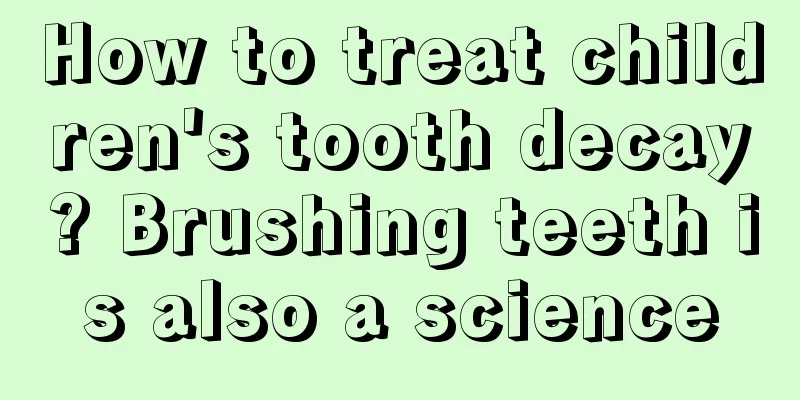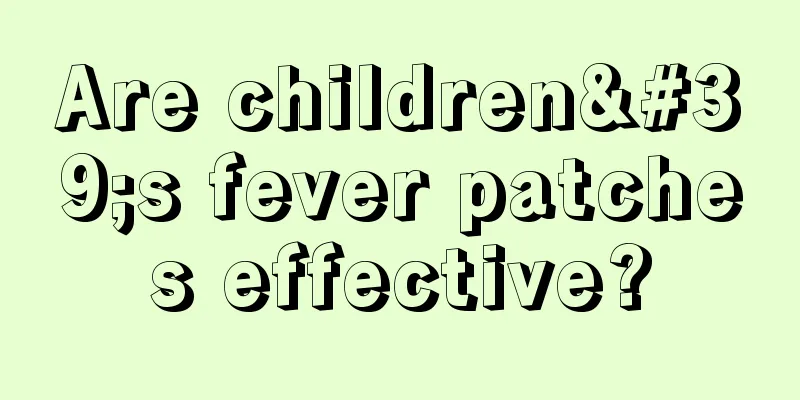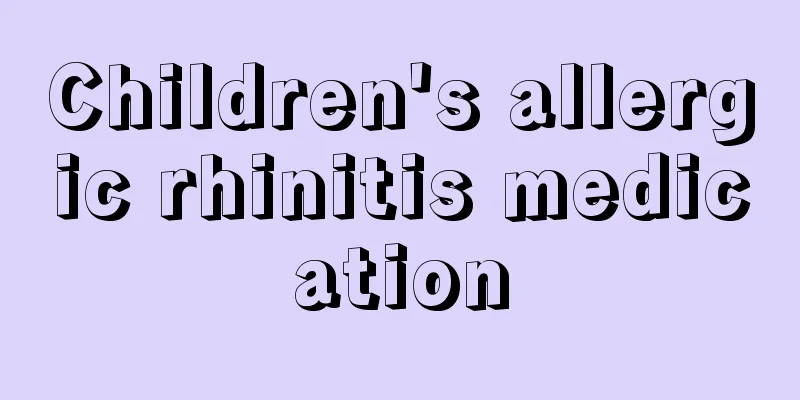How to treat children's tooth decay? Brushing teeth is also a science

|
Dental caries can be said to be the most common dental problem in children's growth. Dental caries will have a great impact on children's lives. If dental caries are not treated in time, it will not only affect the child's normal diet and sleep, but will even affect the child's facial expression, causing great pain to the child's life. Therefore, if a child has a dental caries problem, it must be treated in time. So how to treat children's tooth decay? What methods can be used to treat children's tooth decay in daily life? How can we keep children away from the trouble of tooth decay? Does tooth decay require medical treatment? These questions can be said to be the most concerned issues for parents of children with tooth decay problems. The cause of childhood caries is that bacteria in the mouth decompose residual food debris, releasing acidic substances that corrode the enamel on the surface of the teeth. Primary teeth are more susceptible to childhood caries because they have a low degree of calcification, thin enamel and dentin, and poor acid resistance. Dental experts said: Children's caries can be divided into permanent teeth children's caries and deciduous teeth children's caries. Both permanent teeth and deciduous teeth children's caries can be filled, but the materials used for filling are slightly different. The filling materials for permanent tooth caries are mainly silver-mercury alloy or composite filling resin, while the caries of deciduous teeth can be filled with glass ionomer cement (temporary filling material) because the teeth need to be replaced. Fillings require the removal of decayed tooth tissue, cleaning, disinfection and then filling with filling materials. The effect will be better for shallow caries. In the case of moderate caries and deep caries, sometimes when the decayed tooth tissue is removed, it is already close to the pulp or the pulp has been exposed. At this time, it is necessary to add a layer of pulp protector or perform pulp treatment before filling. If the child's tooth decay has not yet formed cavities, you can also use the drug silver nitrate ammonia to rub it to achieve the purpose of drug treatment of caries. Silver nitrate ammonia is an antiseptic and bactericidal drug with antiseptic, bactericidal and corrosive effects. Silver nitrate ammonia reacts with sesame oil or 10 formalin to form protein silver and reduced silver, which deposits and blocks the dentinal tubules, stops the bacteria in the dentinal tubules from multiplying, and prevents the occurrence of caries. However, silver ammonia nitrate can stain teeth, so it is not suitable for treating front teeth. If children have extensive tooth decay, which makes it impossible to make a tooth-filling cavity, they can grind off the overly sharp tooth tips, tooth edges and surface caries ring tissue to prevent the further development of tooth decay. Another way to treat childhood caries is to mineralize the diseased tooth tissue by artificially preparing a mineral solution containing calcium, phosphorus and fluoride. The process by which the diseased tissue regains minerals is called remineralization. This method is suitable for early-stage caries that have not yet formed cavities. In addition, there is now a safer and more convenient method, which is to use the principle of remineralization of carious tissue to produce Oral-V children's tooth protector, especially for baby's deciduous teeth and children's caries. The above are the more common methods for treating childhood tooth decay. However, for babies, several treatments for childhood tooth decay are not ideal. Only tooth protectors produced based on the principle of remineralization of carious tissue are ideal methods for treating childhood tooth decay for babies because they are simple, effective, painless and safer. Protect your teeth well in the future, brush your teeth in the morning, noon and night, before breakfast and half an hour after lunch, and before going to bed. Don't brush your teeth too hard each time. Choose a suitable desensitizing toothpaste and toothbrush, and brush your teeth for about 3 minutes each time. In daily life, many young parents have an idea that their children will have to change their teeth anyway, so they don’t require their children to clean their teeth in daily life. They only regret it when problems arise with their children’s teeth. |
<<: Four reasons for children's tooth decay, children's oral hygiene should pay attention to
>>: Children's height standards, international height standards reference
Recommend
The harm of a five-month-old baby standing
When a baby is born, he does not have his own abi...
What should I do if my child has a fever and refuses to drink water?
Once a child feels unwell or has a fever, parents...
What should I do if my child smells fishy?
In our lives, people love to eat fish. No matter ...
Can babies with eczema eat bananas?
Eczema is a common skin disease. Nowadays, it is ...
Baby keeps gagging but not vomiting
Newborn vomiting is a very common phenomenon. Bec...
The difference between round and flat pacifiers
A pacifier is a soothing product that babies use ...
What should I do if my child has long-term indigestion? These methods are very effective
If a child suffers from indigestion for a long ti...
What is the height and weight of a 1 year and 3 month old baby?
With a cry, the baby was born. After one year and...
What to do if children overuse their eyes
As the number of people who are addicted to their...
Why do babies cry and struggle when breastfeeding?
When babies cry and struggle while breastfeeding,...
What causes hiccups in infants and young children?
The baby's body is very fragile, so once the ...
Eight-month-old baby sweats a lot
An eight-month-old baby is very fragile and can e...
What should I do if my baby has a mild concussion?
Children with concussions may lose consciousness,...
What are the common causes of drooling in 3-year-old children?
Family members are very concerned about their chi...
What to do if a child has a fever and stomachache
A baby is an important member of the family, and ...









